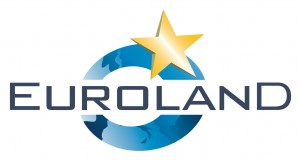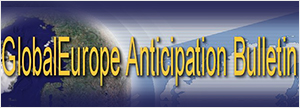{{Developing the tradition}}
Presidential elections in Ukraine are more than just elections. The country is expected to make the decisive choices regarding its geopolitical priorities and internal developments, particularly in the sphere of democracy. The peculiarity of the autumn presidential elections is that nobody knows for certain who will be the country’s next president. This uncertainty is to be contrasted sharply with the neighbouring realities – Russia firmly associates herself with VVP (Vladimir Vladimirovich Putin), who is “Russia’s everything”, officially Belarus praises Alyaksandr Lukashenka who is the country’s bat’ka (informal: father). With this background Ukraine is still divided between various regional economic groups with different views on their role in politics and in Ukraine’s future. However, the multi-clan nature of Ukrainian politics shows some propensity towards consolidation prior to the October elections.
Today, the “West” of Ukraine leans in the direction of ex-PM and former head of the National Bank – Viktor Yushchenko, while the “East” is pushing for its own candidate – current PM Viktor Yanukovich. The other 24 officially registered candidates are not expected to enter the much-anticipated second round between the above-mentioned two. The outgoing president Leonid Kuchma, from the region of Dnepropetrovsk, endorses Viktor Yanukovich from the eastern region of Donetsk.
The tandem of President Kuchma and current PM Viktor Yanukovich represents a force in and of itself. The representatives of the two most powerful eastern clans are moving to the scheme of passing and co-sharing the central power. Given the economic muscles of the eastern regions and their 10 years in power, this trend shows the propensity to grow into a tradition. Theoretically speaking, the transfer of power from one to another can happen even prior to the Election Day in accordance with the Russian scenario of 2000 when then President Yeltsin passed the power to the PM Vladimir Putin.
In order to win the elections, Yushchenko has to do many impossible things, for instance, appeal to the central and eastern regions without which his victory is unlikely. His messages, though, do not always reach the audience in those regions because the empowered eastern regions control mass media and state institutions. The peculiarity of Yushchenko is that he is not associated with a particular region. Yanukovich, however, is strongly associated with the Donetsk region. But both candidates do not hesitate to disorient the observers: if elected, “westerner” Yushchenko promises to bring Ukrainian troops back from Iraq, while “easterner” Yanukovich wants to have a more constructive relationships with NATO and the EU.
{{Ukrainian roulette}}
Moscow has been slow and cautious about taking sides in the Ukrainian elections. The Kremlin was probably taken by surprise when it found out that easterner Yanukovich could be as nationalist as Yushchenko when the government under the former politician blocked the participation of Russian companies in the bid for the “Krivorozhstal’” company. But supporting the “westerner” Yushenko is not a good option for the Kremlin, which is promoting its own integrationist projects and by doing so wants to limit the influence of the EU. Moscow has finally realised that working with either of the candidates will not be easy.
However, the Kremlin instinctively opts for Yanukovich rather than Yushenko. Yanukovich, as an easterner, is thought to be closer to the Russian position and way of thinking, while Yushchenko is considered less reliable due to his links with the West, and especially America. Moscow suspects that Yushchenko would attempt to bring Ukraine into Europe faster than Moscow wants. But the current PM is not an easy choice for the Kremlin. Yanukovich as a main lobbyist for eastern economic groups could be under pressure to not be overly generous to the expanding Russian capital.
Finally, Moscow should acknowledge that neither candidate wishes to orient their country entirely towards Russia and that they are both cautious about Moscow’s initiatives regarding the Single Economic Space (SES) between Russia, Ukraine, Belarus and Kazakhstan. It seems that Russia cannot be too pushy with Ukraine about the SES despite Ukraine’s dependency on Russian energy sources. Instead of trying to lock Ukraine in the SES, Moscow needs a comprehensive and consistent strategy wherein the role of local (border) authorities should be redefined in order to prevent things like conflicts over the Tuzla spit. The hurrah-patriotism of the Krasnodar region authorities to quickly absorb Tuzla into the Taman peninsula only complicated the relationship between Moscow and Kiev. But as if to completely disorient Moscow and divert its attention from the Ukrainian elections, Washington, via Senator Ben Campbell, is interested in the idea of replacing the Belarusian president Lukashenka with a new leader.
{{In the Ukrainian forests}}
Both for the EU and the US, the Kuchma regime has not always been unsuitable. Ukraine under Kuchma could never fulfil the accession criteria thus removing the threat of expanding the EU even further and absorbing a large and problematic country. In other words, Ukraine with Kuchma has helped to set a clear eastern limit for the enlargement process of 2004. However, the country has not fully integrated with Russia thus preventing the “much-feared” (re-)birth of the “economic empire” under Russia’s leadership. Today’s position of the EU and the US remains the same: Ukraine should westernise herself but in doing so it should not expect too much in return. The US, however, would like to see Ukraine in the EU, while the EU thinks otherwise. Another possibility to anchor Ukraine in the West is via NATO and this is a much more feasible option. The only possibility for the Ukraine to start moving towards the EU could be through Yushchenko but whether this is in the interests of the EU right now is a big question. Finally, if the events in the Ukraine develop along the lines of the Georgian scenario, the possibility, which cannot be dismissed, is that both the EU and the US will have to react and choose their favourites. But question remains as to whether Russia will pick the same guy.
{{In search of a “Ukrainian Putin”}}
For the country’s citizens, Ukrainian politicians and political parties are no more and no less than the representatives or agents of various regional economic clans. But there are two popular politicians in Ukraine: Viktor Yushchenko and … Vladimir Putin. Viktor Yushchenko has not completely escaped the label of being considered a representative of a certain group, but he still carries the mantra of a legitimate national and oppositional candidate. Those who still believe in Europe and most importantly a Ukrainian European future would choose Yushenko. But what many people would prefer is a national variant of the Russian President Putin who would bring internal stability, order and more rationalism or pragmatism. While Putin’s achievements in these areas remain somewhat controversial – the unresolved Chechnya issue, the attack on Yukos, the consistent rise of the “siloviki” group – a “Ukrainian Putin” could cause more trouble to the Kremlin by embarking on the road of state capitalism and more stringent foreign policy. But still a “Ukrainian Putin” would be closer to the philosophy of the original Putin. With two Viktors going neck-to-neck the birth of a local Putin is delayed because Ukrainian elites do not want to sacrifice their economic freedoms and people are not particularly eager to have “siloviki” at the top of the power pyramid.


 LEAP2040 Toutes les informations et archives Europe2040
LEAP2040 Toutes les informations et archives Europe2040


